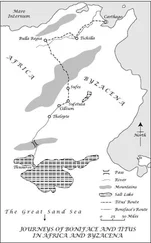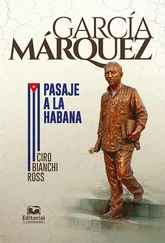Ross Laidlaw - Theodoric
Здесь есть возможность читать онлайн «Ross Laidlaw - Theodoric» весь текст электронной книги совершенно бесплатно (целиком полную версию без сокращений). В некоторых случаях можно слушать аудио, скачать через торрент в формате fb2 и присутствует краткое содержание. Жанр: Исторические приключения, на английском языке. Описание произведения, (предисловие) а так же отзывы посетителей доступны на портале библиотеки ЛибКат.
- Название:Theodoric
- Автор:
- Жанр:
- Год:неизвестен
- ISBN:нет данных
- Рейтинг книги:3 / 5. Голосов: 1
-
Избранное:Добавить в избранное
- Отзывы:
-
Ваша оценка:
- 60
- 1
- 2
- 3
- 4
- 5
Theodoric: краткое содержание, описание и аннотация
Предлагаем к чтению аннотацию, описание, краткое содержание или предисловие (зависит от того, что написал сам автор книги «Theodoric»). Если вы не нашли необходимую информацию о книге — напишите в комментариях, мы постараемся отыскать её.
Theodoric — читать онлайн бесплатно полную книгу (весь текст) целиком
Ниже представлен текст книги, разбитый по страницам. Система сохранения места последней прочитанной страницы, позволяет с удобством читать онлайн бесплатно книгу «Theodoric», без необходимости каждый раз заново искать на чём Вы остановились. Поставьте закладку, и сможете в любой момент перейти на страницу, на которой закончили чтение.
Интервал:
Закладка:
Chapter 22
Rome’s Senate House
Despite what, in the story, Cassiodorus seemed to believe, this was not the building that Scipio and Caesar knew, but an Imperial replacement dating from the reign of Diocletian and today known as the Curia.
you must have contact with the Sibyl
A reference to the authoress of the Sibylline Prophecies (foretelling the future destiny of Rome), the Oracle of Cumae.
he’s no Sulla
Lucius Cornelius Sulla, successful general and ultra-reactionary politician, became Dictator of Rome in 81 BC. There followed a reign of terror, which saw several thousand ‘enemies of the state’ proscribed and executed. The young Julius Caesar very nearly became one of Sulla’s victims, but saved himself by the coolness and courage of his deportment when interrogated.
Chapter 23
a careful sale and redistribution of land
Liberius implemented a system of parcelling out called ‘thirds’. The term is surely misleading. Given the tiny number of Goths compared to Romans, this could hardly mean that the native Italians were to be deprived of one-third of their land and property. The fact that the final settlement seems to have satisfied Theoderic’s followers, without causing undue hardship to their Roman ‘hosts’, argues that Liberius pulled off an astonishing coup, squaring the circle of conflicting interests. (See Moorhead’s Theoderic in Italy , Chapter 2.)
one young female. . called ‘Spicy’
One of the charges brought against Pope Symmachus (who seems, like some of his Renaissance successors, to have been as much worldly politician as spiritual leader) by his opponents, was that he consorted with loose women, especially one who rejoiced in the nickname ‘Conditaria’, which translates as ‘highly seasoned’, or indeed ‘spicy’, as Chadwick renders it in his Boethius .
Laurentius, must. . retire
For the sake of dramatic clarity I have telescoped Theoderic’s confirmation of Symmachus as Pope, his fiat concerning Church lands, and his decision as to the fate of Laurentius, into a single incident. In fact, final settlement of these matters was not reached till some time after 500.
he was able to back his claim
Displaying a breathtaking combination of inventiveness and lack of scruple, Symmachus produced a formidable battery of forged documents to support his claim: Synodi sinuessanae gesta; Constitutio Silvestri gesta Liberii; Gesta de Xysti purgatione; Gesta Polychronii . Anyone interested in their contents will find them admirably summarized in Chapter 4 of Moorhead’s Theoderic in Italy .
the five hundred and first
Our present system of dating from the birth of Christ, devised by Dionysius Exiguus, was only officially adopted in 527, the year after Theoderic’s death. However, it’s not unreasonable to suppose its periodic use for some time prior to that date. Official acknowledgement of any important change often lags behind a ground-swell of popular usage or opinion; e.g., the adoption in Scotland of Christmas Day as a public holiday, which, for four hundred years following its prohibition as a pagan festival by John Knox, it had not been.
The beautiful discs
This is the famous Senigallia medallion, named after the town near which a surviving example was discovered in 1894. The medallion has generally been dated to 500 and associated with Theoderic’s visit to Rome on the occasion of his tricennalia . However, my old tutor Philip Grierson has argued for a date of 509 (see ‘The Date of Theoderic’s Gold Medallion’, Hikuin , 1985).
yet were themselves still here
And, in some cases, still are: the Massimo (Maximus), Colonna and Gaetani families have pedigrees stretching back to the Roman Republic. (The consul Fabius Maximus was famous for adopting ‘Fabian’ tactics against Hannibal.)
Chapter 24
the bowels of the amphitheatre
Like one of those clever cutaway models designed to show the inner workings of the human body or the internal structure of a building, the Colosseum, in its present plundered state, shows clearly the honeycomb of passages under the arena where the animals were caged and then transported to the surface by means of a complex system of lifts and ramps.
Thrasamund’s. . hunters
The excavated Roman villa at Piazza Armerina in Sicily boasts a magnificent series of mosaics, dating from c . AD 300, showing how animals for the Roman Games were captured and transported. There are mounted men driving stags into a circle of nets; men loading elephants onto a galley; a Roman animal-catcher directing Moorish assistants to surround and net a lion; an ox-drawn cart with a shipping-crate containing one of the big cats; etc.
he strained to twist the creature’s horns
I hold my hands up; the incident’s a shameless crib from a scene in the film Quo Vadis? .
can have terrible consequences
There is ample evidence that seditio popularis (the expression surely needs no translation) at this time caused Theoderic considerable concern. The Liber pontificalis paints an alarming picture of fighting between Laurentian and Symmachan mobs (egged on, respectively, by Festus and Probinus, and by Faustus niger ); of clergy put to the sword, and nuns taken from convents and clubbed; and fighting in the streets of Rome a daily occurrence. Pope Gelasius (492-96) reported that two successive bishops were murdered in Scyllaeum (Squillace), and the Fragmentum Laurentianum uses the expression ‘ bella civilia ’ to describe the rioting in Rome. Things got so bad that on 27 August 502 Theoderic wrote to the bishops assembled in Rome to use their influence to curb the prevailing disorder.
Chapter 25
to hold administrative posts
Under Theoderic, the administration of Italy continued virtually unchanged from imperial times. There were a few (a very few) deviations from his principle whereby the bureaucracy would be manned by Romans, the army by Goths. Count Colosseus, in charge of Pannonia Sirmiensis with troops under him, Servatus Dux Raetiarum, and one Cyprian, who served Theoderic in a military capacity, were all Romans; while Wilia the Comes Patrimonii , Triwila the Praepositus Sacri Cubilici , and the senator Arigern, were all Goths. They were, however, exceptions. To a contemporary, unless they lived in the Gothic heartland of north-east Italy with its capital at Ravenna, it would have been difficult to tell that the country was no longer part of the Roman Empire.
a panegyric. . welcoming refugees
Who were these people? Priscian is not specific, but Zachariah of Mytilene ( Historia ecclesiastica ) wrote of one Dominic ‘who had a quarrel with the tyrant [Theoderic] and took refuge with King Justinian’. The reference to Justinian (who was not, of course, emperor in Theoderic’s lifetime, but who might loosely be described as ‘king’ in his capacity of virtual co-ruler with Justin) means that the event occurred towards the end of Theoderic’s reign, when the label ‘tyrant’ might be held to have had some justification. Priscian however (as mentioned by Ennodius in Panegyricus dictus Theoderico ), was writing at the very beginning of the sixth century, when Theoderic’s popularity was (with the exception of the Laurentian senators disgruntled by the alienation of Church lands) as yet undimmed. Perhaps it was this senatorial clique (expanded by wishful thinking into a larger and more representative group) that Priscian had in mind.
send him an expert harpist
Читать дальшеИнтервал:
Закладка:
Похожие книги на «Theodoric»
Представляем Вашему вниманию похожие книги на «Theodoric» списком для выбора. Мы отобрали схожую по названию и смыслу литературу в надежде предоставить читателям больше вариантов отыскать новые, интересные, ещё непрочитанные произведения.
Обсуждение, отзывы о книге «Theodoric» и просто собственные мнения читателей. Оставьте ваши комментарии, напишите, что Вы думаете о произведении, его смысле или главных героях. Укажите что конкретно понравилось, а что нет, и почему Вы так считаете.












